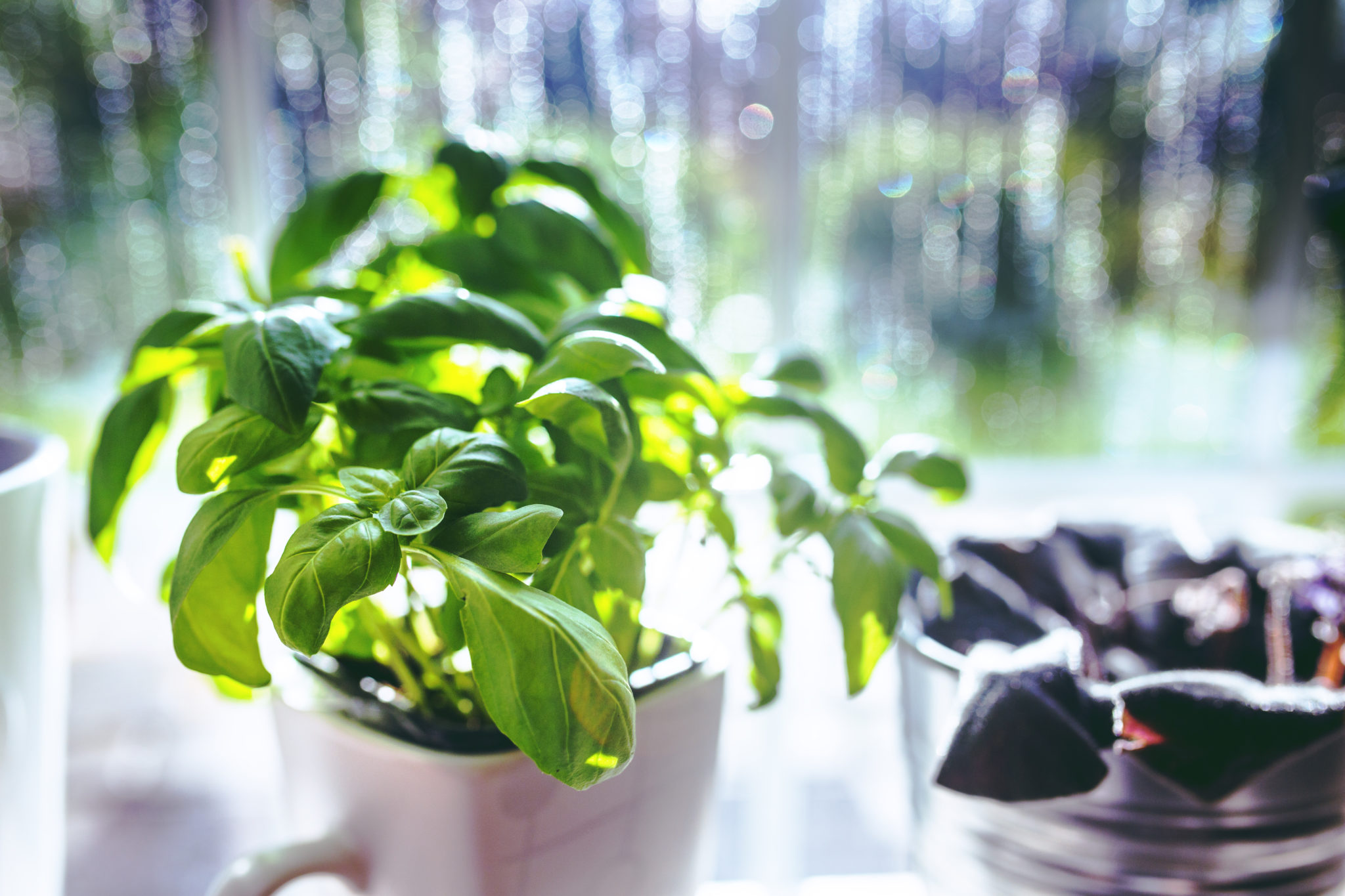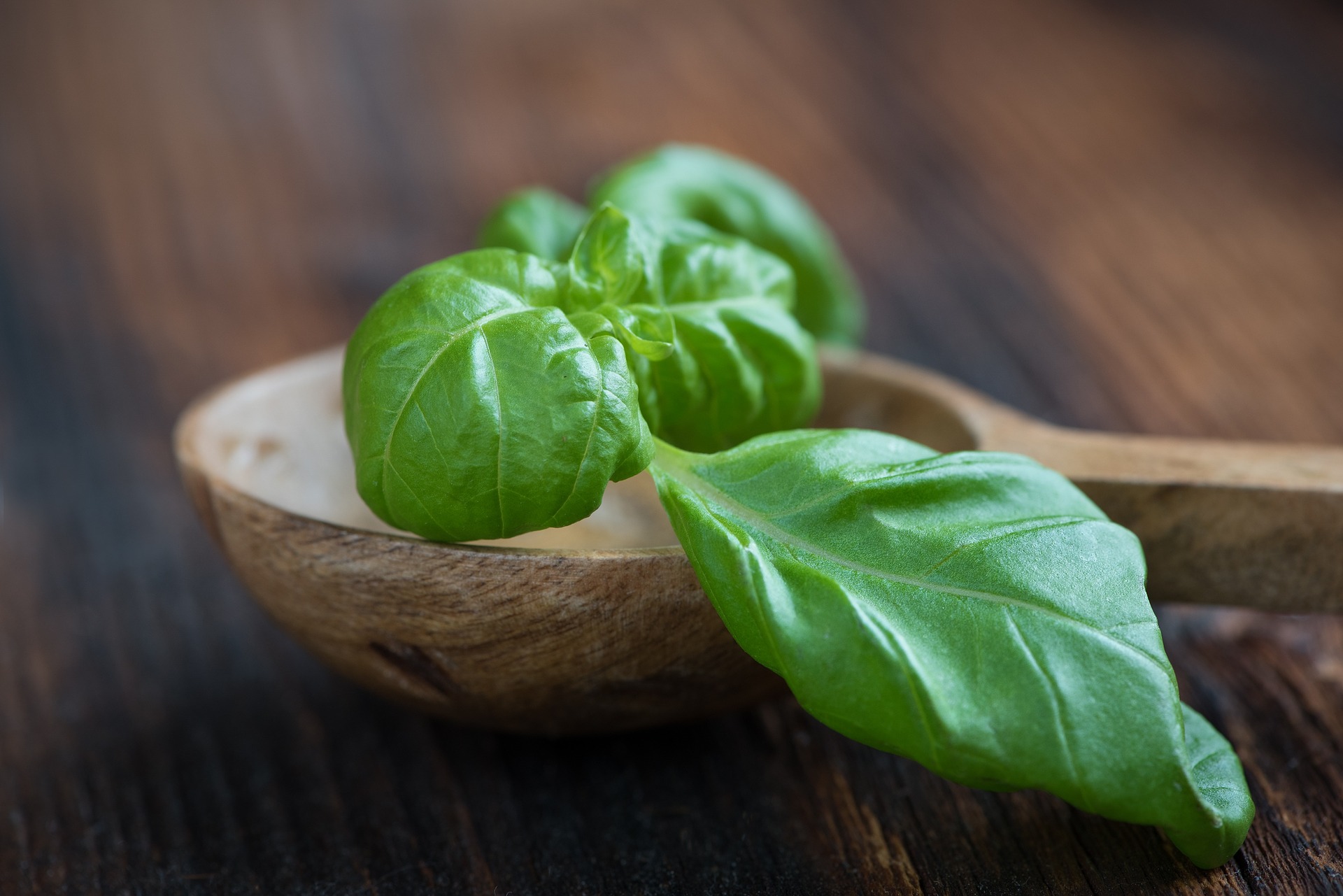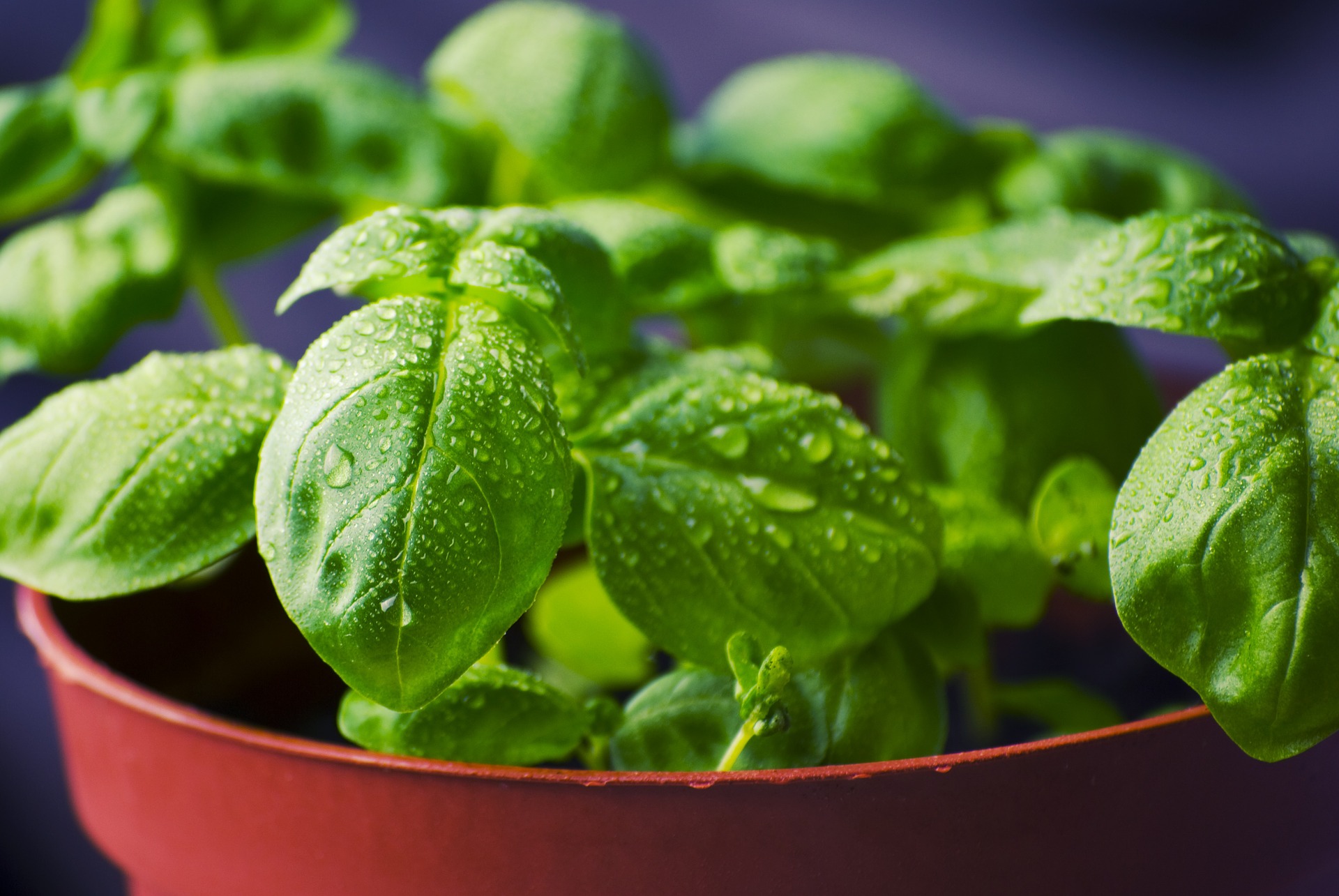Basil is a highly fragrant herb well known in Italian cooking, but it’s uses and benefits exceed the pot of marinara sauce or your favorite pesto. It is very easy to grow and even easier to add to your favorite dishes, soups, beverages and even desserts!
There are more than 40 different types of basil, each having its own distinct flavor profile, appearance and nutrient profile. Like most other types of plants, basil contains antioxidant rich oils that boast some surprising benefits. While some cultivars, like Holy Basil, are more researched than others, the inclusion of fresh basil into your meals will not only add robust flavor and aroma but a handful of health perks.
-
Contains flavanoids compounds that protect cells and fight free radical damage
-
May also provide some anti-bacterial properties (thank you flavanoids!)
-
Carries anti-inflammatory compounds in its unique essential oils
-
Includes cancer-fighting nutrients and properties
-
Antioxidants like Vitamin A help prevent cholesterol from oxidizing and creating fatty build-up in your arteries
So, how much fresh basil do you need to add to meals in order to obtain the health benefits? That part is a bit unclear and there are no known established recommendations. BUT, we do know that fresh basil and other herbs and spices are rich in antioxidants and virtually calorie free.
AND…
Half a cup of fresh basil also boasts:
~100% Vitamin K
~25% Vitamin A
~12% Manganese
~10% Copper
But there’s more…basil contains about 10 different vitamins and minerals for only 3 calories! You have nothing to lose and only vibrant flavor and added nutrition to gain!
While you may find dried basil easy and convenient to use, most of the researched benefits point to the essential oils which are mostly removed during the drying process. Choose fresh whenever possible.

Growing basil is easier than you think, even if you are no expert gardener (like me!). Basil is in season during warm summer months and buying the actual plant is always much more cost effective than buying containers of picked basil in the grocery store. Look for plants with vibrant green and glossy leaves without blemishes.
Picking leaves throughout the summer actually encourages more growth, so keep on eating! Make sure your plant is able to get partial sun and the soil is able to drain well. Water when the topsoil appears dry, but avoid watering the leaves. If it begins to flower, you can pinch off the flowers so that the plant is able to give proper nourishment to the leaves instead of flowers.

And that’s about all there is to it!! Now, go get a basil plant and let the cooking begin!
A few ways to add fresh basil into your kitchen creations:
Classic Pesto- If you haven’t ever made pesto, you don’t know what you are missing! This is the best pesto recipe and so very simple! You will amazed at how fresh and flavorful it is!
Cashew and Basil Chicken Lettuce Wraps- An absolutely delicious meal your whole family will enjoy and is incredibly quick to make! The basil amps up the flavor of traditional lettuce wrap recipes.
Roasted Roma Tomatoes with Feta and Basil- An eye-catching side dish that will impress dinner guests and on weeknights please those at the family dinner table
Pizza– We love to top homemade pizza with fresh chopped basil after cooking. It adds gourmet flavor in a matter of seconds!
Caprese Salad– Vine-ripe tomatoes, creamy mozzarella, fresh-picked basil and a dash of balsamic vinegar and olive oil. A delightful brunch, lunch or course for a fancy dinner party. So simple, but absolutely scrumptious!
Orange Basil Infused Water– Who says water is boring! Try with sparkling water for a refreshing summer beverage!
Summertime Fruit Salad– Maybe fruit and fresh basil is a bit unexpected but don’t knock it until you try it! You might be surprised!
REFERENCESBaliga MS, Jimmy R, Thilakchand KR, Sunitha V, Bhat NR, Saldanha E, Rao S, Rao P, Arora R, Palatty PL. “Ocimum sanctum L (Holy Basil or Tulsi) and its phytochemicals in the prevention and treatment of cancer.” Nutr Cancer. 2013;65 Suppl 1:26-35. doi: 10.1080/01635581.2013.785010. Jennnifer Molnar. “FROM LAB TO LUNCH: BASIL” http://www.precisionnutrition.com/wp-content/uploads/2009/11/from-lab-to-lunch-basil.pdf
